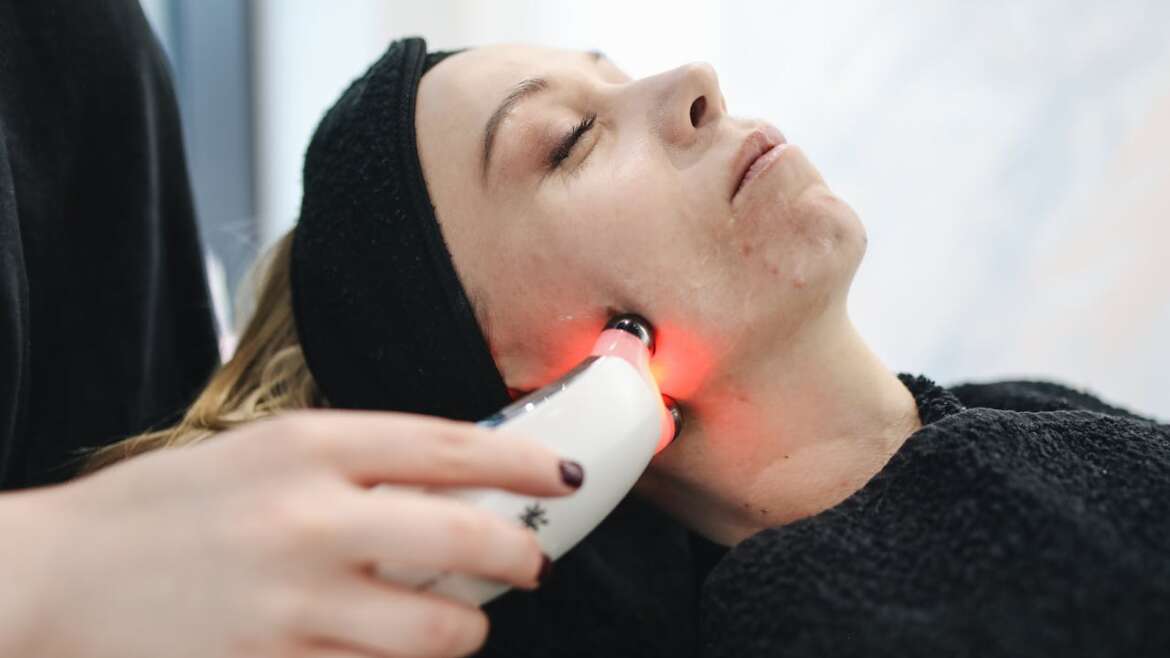Dermatology treatments play a crucial role in maintaining skin health and addressing various skin conditions, but there are several myths and misconceptions surrounding these procedures. Let’s debunk some of the most common myths about dermatology treatments to provide clarity and accurate information.
Myth 1: Dermatological Treatments Are Only for Cosmetic Purposes
One prevalent myth is that dermatological treatments are purely cosmetic and unnecessary. While dermatologists do offer cosmetic procedures like Botox, fillers, and laser treatments, they also diagnose and treat medical skin conditions such as acne, eczema, psoriasis, skin cancer, and more. Dermatology encompasses both cosmetic and medical aspects, ensuring skin health and well-being.
Myth 2: Dermatological Treatments Are Painful and Invasive
Another myth is that dermatological procedures are always painful and invasive. While some treatments like surgeries or laser procedures may cause discomfort, dermatologists use various techniques to minimize pain, such as topical numbing agents, local anesthesia, and advanced technologies that prioritize patient comfort. Many non-invasive or minimally invasive procedures have little to no downtime and are well-tolerated by patients.
Myth 3: Skincare Products Can Replace Professional Treatments
Although skincare products are essential for daily skin care maintenance, they cannot entirely replace professional dermatological treatments. Dermatologists have access to medical-grade treatments and technologies that address specific skin concerns more effectively than over-the-counter products. Professional treatments can target deep-seated issues like acne scars, wrinkles, or skin discoloration that may not respond adequately to topical skincare alone.
Myth 4: Dermatological Treatments Are Only for Women
There’s a misconception that dermatological treatments are predominantly for women. In reality, men also benefit significantly from dermatological care. Men experience similar skin conditions and concerns as women, including acne, rosacea, hair loss, and skin cancer. Dermatologists tailor treatments to suit individual needs regardless of gender, promoting skin health and confidence for everyone.
Myth 5: Dermatological Treatments Are Expensive and Unaffordable
While some dermatological treatments can be costly, many clinics offer a range of options to accommodate different budgets. Additionally, certain medical dermatological services, such as acne treatment or skin cancer screenings, may be covered by health insurance. It’s essential to discuss cost and payment options with your dermatologist to find a suitable plan that fits your budget and needs.
Myth 6: Dermatological Treatments Are Unsafe or Risky
There’s a misconception that dermatological treatments are inherently unsafe or risky. In reality, dermatologists undergo extensive training and adhere to strict safety protocols to ensure patient safety and optimal outcomes. Like any medical procedure, dermatological treatments carry potential risks and side effects, but these are typically minimal and manageable under the care of a qualified professional.
Myth 7: Dermatological Treatments Are Only for Severe Skin Conditions
Dermatological treatments are not solely reserved for severe skin conditions. Dermatologists offer preventive care, routine skin exams, and treatments for minor concerns such as dry skin, sun damage, or mild acne. Early intervention and regular dermatological care can prevent the progression of skin issues and maintain healthy skin over time.
In conclusion, debunking common myths about dermatology treatments is essential to promote accurate information and encourage individuals to seek professional care for their skin concerns. Dermatologists play a vital role in diagnosing, treating, and preventing various skin conditions, ensuring optimal skin health and well-being for patients of all ages and backgrounds. If you have questions or concerns about dermatological treatments, consult a board-certified dermatologist for personalized advice and recommendations tailored to your skin needs.
Dermatology procedures encompass a wide range of treatments that serve both cosmetic and medical purposes. While many dermatological procedures are associated with enhancing appearance and addressing aesthetic concerns, several are primarily focused on diagnosing, treating, or preventing medical skin conditions. Let’s highlight some common dermatological procedures that serve medical purposes beyond cosmetic enhancement:
Medical Dermatology Procedures:
1. Skin Cancer Screening and Biopsy: Dermatologists perform thorough skin examinations to detect early signs of skin cancer, including melanoma, basal cell carcinoma, and squamous cell carcinoma. Suspicious lesions are biopsied for accurate diagnosis and appropriate treatment planning.
2. Acne Treatment: Acne is a common skin condition that can have physical and psychological impacts. Dermatologists offer various treatments, including topical medications, oral antibiotics, hormonal therapy, and isotretinoin (Accutane), to control acne and prevent scarring.
3. Eczema and Psoriasis Management: Dermatologists specialize in diagnosing and managing chronic inflammatory skin conditions like eczema (atopic dermatitis) and psoriasis. Treatment options may include topical corticosteroids, immunomodulators, phototherapy, and biologic medications.
4. Rosacea Therapy: Rosacea is a chronic skin condition characterized by facial redness, flushing, and sometimes acne-like breakouts. Dermatologists prescribe medications and recommend skincare routines to manage symptoms and prevent flare-ups.
5. Skin Allergy Testing: Dermatologists conduct patch testing or skin prick tests to identify allergens responsible for allergic contact dermatitis or other allergic skin reactions. This helps patients avoid triggering substances and manage their skin condition effectively.
6. Hair Loss Evaluation and Treatment: Dermatologists assess hair loss conditions such as alopecia areata, androgenetic alopecia (male/female pattern baldness), and telogen effluvium. Treatment options may include topical medications, oral medications, platelet-rich plasma (PRP) therapy, and hair transplant surgery.
7. Infectious Skin Disease Management: Dermatologists diagnose and treat various infectious skin diseases such as fungal infections (e.g., ringworm, athlete’s foot), viral infections (e.g., herpes simplex, warts), and bacterial infections (e.g., cellulitis, impetigo).
8. Mohs Micrographic Surgery: This specialized surgical technique is used for removing skin cancer, particularly those with high-risk or recurrent tumors. Mohs surgery aims to spare healthy tissue while ensuring complete removal of cancerous cells.
9. Chronic Wound Care: Dermatologists manage chronic wounds, ulcers, and skin complications associated with conditions like diabetes, vascular disease, and autoimmune disorders. Treatment may involve wound debridement, advanced dressings, and specialized wound care techniques.
10. Treatment of Hyperhidrosis: Dermatologists offer options to manage excessive sweating (hyperhidrosis), including topical antiperspirants, oral medications, botulinum toxin (Botox) injections, and even surgical interventions like sympathectomy.
These medical dermatology procedures play a critical role in diagnosing, managing, and treating various skin diseases and conditions that impact patients’ health and quality of life. While cosmetic dermatology focuses on aesthetic enhancements, medical dermatology addresses underlying health concerns, emphasizing the importance of dermatologists in maintaining overall skin health and well-being.
If you have specific skin concerns or medical conditions, consult a board-certified dermatologist for personalized evaluation, diagnosis, and treatment recommendations tailored to your individual needs. Early intervention and appropriate management can help prevent complications and promote healthy skin for years to come.


